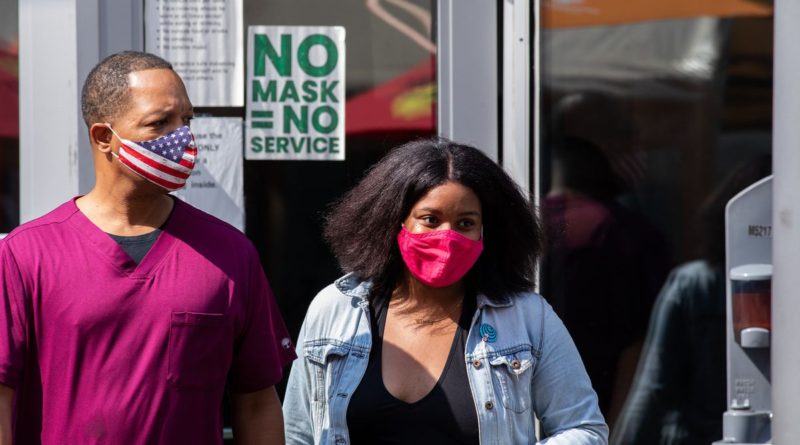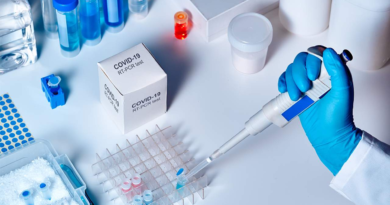COVID-19 in Illinois updates: Here’s what’s happening Wednesday
The Illinois Department of Public Health announced 2,157 new confirmed cases of COVID-19 and 37 deaths on Wednesday.
The spike comes as new restrictions on public gatherings go into effect in Will and Kankakee counties, due to the rising number of people testing positive for the coronavirus.
There will be no indoor service for bars or restaurants, outside bar and food service must close at 11 p.m., and gatherings are capped at 25 people or 25% of the overall room capacity. Casinos also must close at 11 p.m. and are limited to 25% capacity.
The stricter rules come after counties posted an 8% positivity rate for three consecutive days, becoming the second of the state’s 11 regions to be sent backward from the phase four rules that are widely in place throughout the state.
Counties in the Metro East area near St. Louis have also been placed under the restrictions, and could face tighter limits if their positivity rate stays high.
On Tuesday, Gov. J.B. Pritzker announced a new statewide restaurant and bar policy requiring all patrons to wear a mask while interacting with wait staff and other employees, when food and beverages are brought to the table and when picking up carry-out orders.
Here’s what’s happening Wednesday with COVID-19 in the Chicago area and Illinois:
3:05 p.m.: Cook County medical examiner has ruled on 10,000 deaths already this year
The Cook County medical examiner already has ruled on 10,000 deaths for the year, nearly 4,000 more than in all of 2019, with about half of this year’s cases involving COVID-19-related deaths, Cook County Board President Toni Preckwinkle said Wednesday.
But while the county passed 5,000 deaths from the pandemic last week, it also is seeing increases in opioid deaths, homicides and suicides, with Black residents shouldering a disproportionate amount of the increases, Preckwinkle said.
“Each one was preventable,” Preckwinkle said. “As a community, we must do better.”
2:24 p.m.: Indiana governor extends statewide mask order for 30 days; Lake County, Ind., nears 8,800 cases
Indiana’s governor extended the statewide face mask order Wednesday that he first issued a month ago aimed at slowing the coronavirus spread.
Republican Gov. Eric Holcomb announced he was keeping the mask mandate in place for another 30 days.
Holcomb said he was also extending the state’s limits crowd sizes for restaurants, bars and public events. Those orders were all set to expire late Wednesday unless the governor acted.
Holcomb said he was pleased the state’s rates of new coronavirus cases have been holding steady and he does not want to see it trending up again.
1:45 p.m.: The stress of dealing with COVID-19 is causing decision fatigue. Here’s how to cope.
Even before the pandemic, making constant decisions daily could create stress.
COVID-19 has added weight to small and big decisions alike. Should I pick up takeout? Do I send my child to school? Do we allow a babysitter to come over? Should we attend a birthday party? Is one item from the grocery store worth the trip?
The concept of exhaustion and stress after making choices is known as decision fatigue. After months of assessing the risk and benefit of daily choices during the coronavirus crisis, people are tired. Especially as school begins, many families have been agonizing over whether to send their children to school or how to manage remote learning.
12:12 p.m.: 2,157 new known COVID-19 cases, 37 additional deaths
The Department of Public Health on Wednesday announced 2,157 new confirmed cases of COVID-19 and 37 deaths. Overall, Illinois has reported 225,627 cases, including 7,954 deaths.
11:42 a.m.: Jobless workers could get an extra $300 a week in benefits. Pritzker says Illinois is applying for Trump’s benefits program.
Illinois is applying for the $300 weekly unemployment benefits supplement President Trump ordered earlier this month to provide financial assistance to jobless workers during the coronavirus pandemic.
On Aug. 8, President Trump authorized the federal supplement, which is being doled out to states by the Federal Emergency Management Agency, as a temporary fix to replace the extra $600-a-week in federal benefits that expired last month. Congress remains at a standstill on negotiations for an additional coronavirus relief package, which could restore some, if not all, of those benefits.
At a news conference Tuesday, Gov. J.B. Pritzker was asked to respond to President Trump’s comment that Illinois is one of the states that has not applied for the benefits.
Pritzker said “We have begun that process, indeed. It takes a lot of setup on an internal basis for us to move forward with that and so that’s what we’ve been doing.”
More than 30 states have received approval for the benefits program as of Tuesday, according to FEMA. The agency, which typically handles disaster relief, will provide up to $44 billion from the Disaster Relief Fund for lost wage payments, and states will administer those funds.
10:11 a.m.: ‘There’s been an awful lot of partying’: Northwestern University asks Evanston residents to report students who ignore COVID-19 precautions in off-campus gatherings
Northwestern University’s campus in Evanston is going to feel less crowded this fall, with residence hall capacity reduced to about 70% and more than half of all employees still working from home, school officials said Tuesday.
But those estimates didn’t fully assuage concerns from residents that students will instead move into neighborhood apartments and throw raucous parties, potentially accelerating the spread of COVID-19 in a suburb that has so far avoided an uncontrollable outbreak.
Residents raised the issue Tuesday evening during a 90-minute Zoom meeting, billed as a “community town hall,” to discuss NU’s plan for repopulating its suburban campus when classes begin next month.
9:55 a.m.: CDC advice to retail workers: Don’t argue with anti-mask shoppers
The Centers for Disease Control and Prevention has issued a warning about a new coronavirus health risk you probably didn’t expect: getting slapped, choked or kicked in the workplace by angry customers. And the best way to avoid it is not to engage.
The health agency issued guidance this week for retail and service workers suggesting ways consumer-facing companies can limit violence toward workers that may occur when businesses implement policies to stop the spread of the virus. Or in other words, how to protect workers tasked with the unenviable job of asking shoppers to wear masks, keep 6 feet apart or wait their turn before entering a capacity-limited store.
The new CDC page gives a series of actions companies can take to protect workers, from installing panic buttons to having staff enforcing mask-wearing operate in teams of two. Above all, workers shouldn’t put themselves in the direct line of danger, according to the federal agency that usually focuses on disease prevention.
7 a.m.: CDC now says people exposed to coronavirus may not need to be tested
The Centers for Disease Control and Prevention has changed its COVID-19 guidelines, no longer recommending testing for most people without symptoms, even if they’ve been in close contact with someone known to have the virus.
The CDC had said that viral testing was appropriate for people with recent or suspected exposure, even if they were asymptomatic. Its previous guideline had said, ”Because of the potential for asymptomatic and pre-symptomatic transmission, it is important that contacts of individuals with (COVID-19) infection be quickly identified and tested.”
The guideline now reads, “If you have been in close contact (within 6 feet) of a person with a COVID-19 infection for at least 15 minutes but do not have symptoms, you do not necessarily need a test unless you are a vulnerable individual or your health care provider or State or local public health officials recommend you take one.”
The CDC guidelines still say people should get tested if they have symptoms and that someone’s health care provider “may advise a COVID-19 test.”
6:45 a.m.: COVID-19 tracking apps, supported by Apple and Google, begin showing up in app stores
They work by sharing anonymous Bluetooth beacons with nearby devices running the same software, tagging those that suggest extended and close contact associated with coronavirus spread, and saving the last 14 days of these records.
A positive test for COVID-19 in one of those states should include a code you enter into the app to upload its close-contact records to a health-authority server that then makes this anonymized data available to all these apps at their daily check-ins. If the app sees one of these reports match its saved list of close contacts, it warns of possible exposure and advises testing and quarantine.
Breaking coronavirus news
Stay up to date with the latest information on coronavirus with our breaking news alerts.




